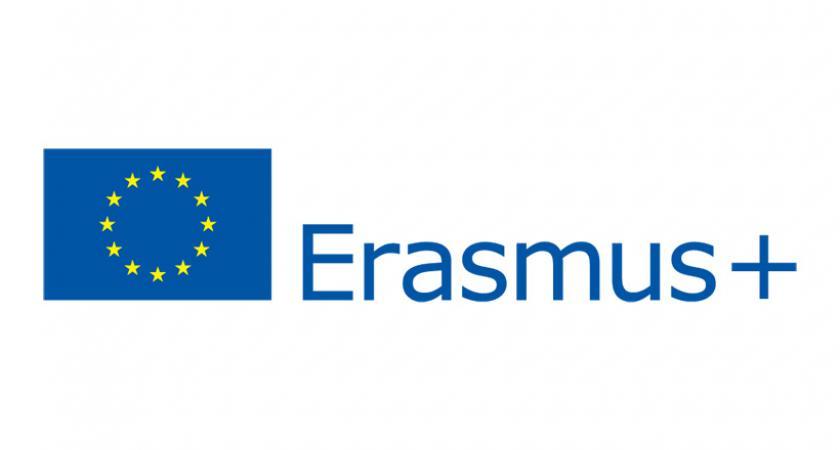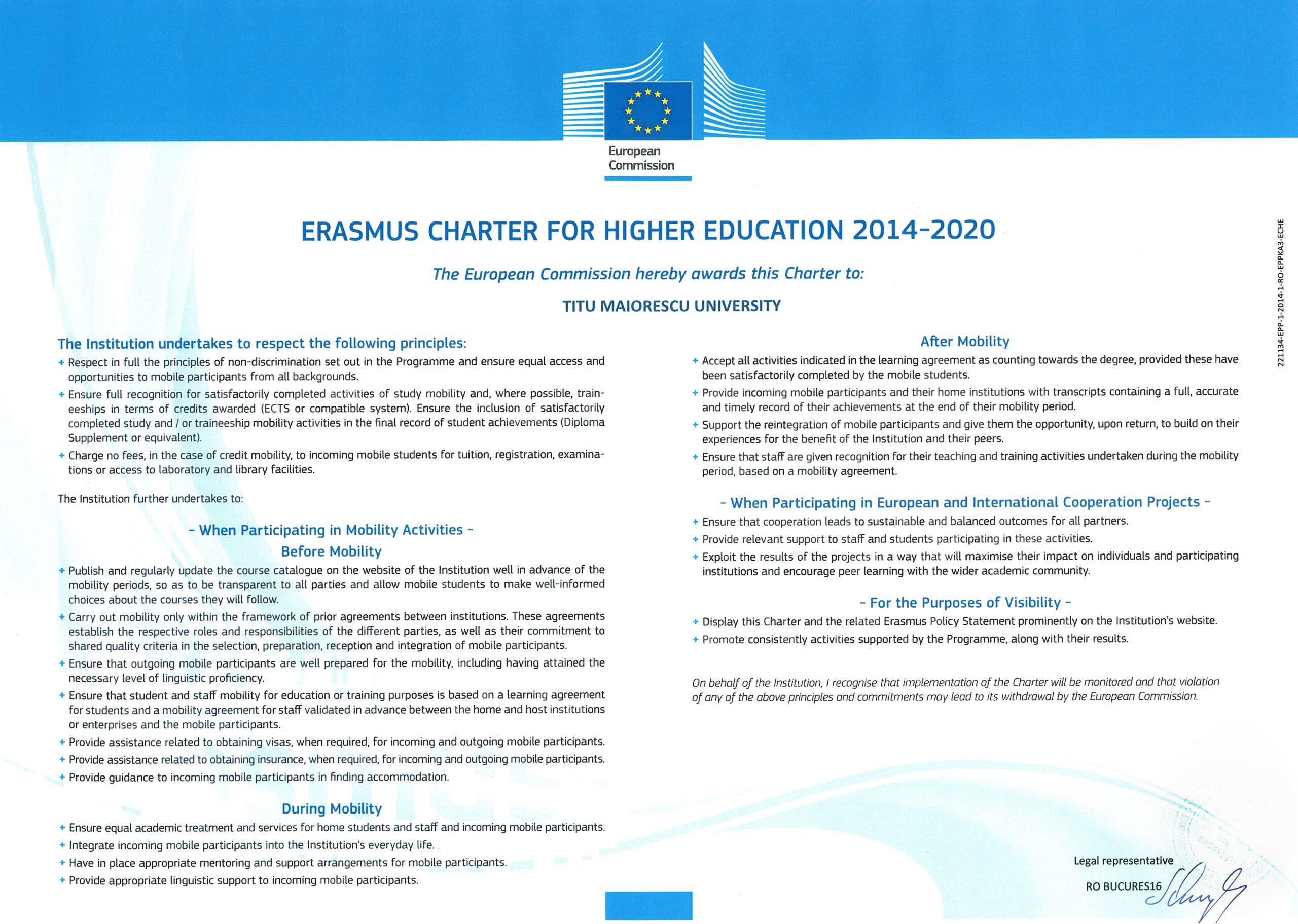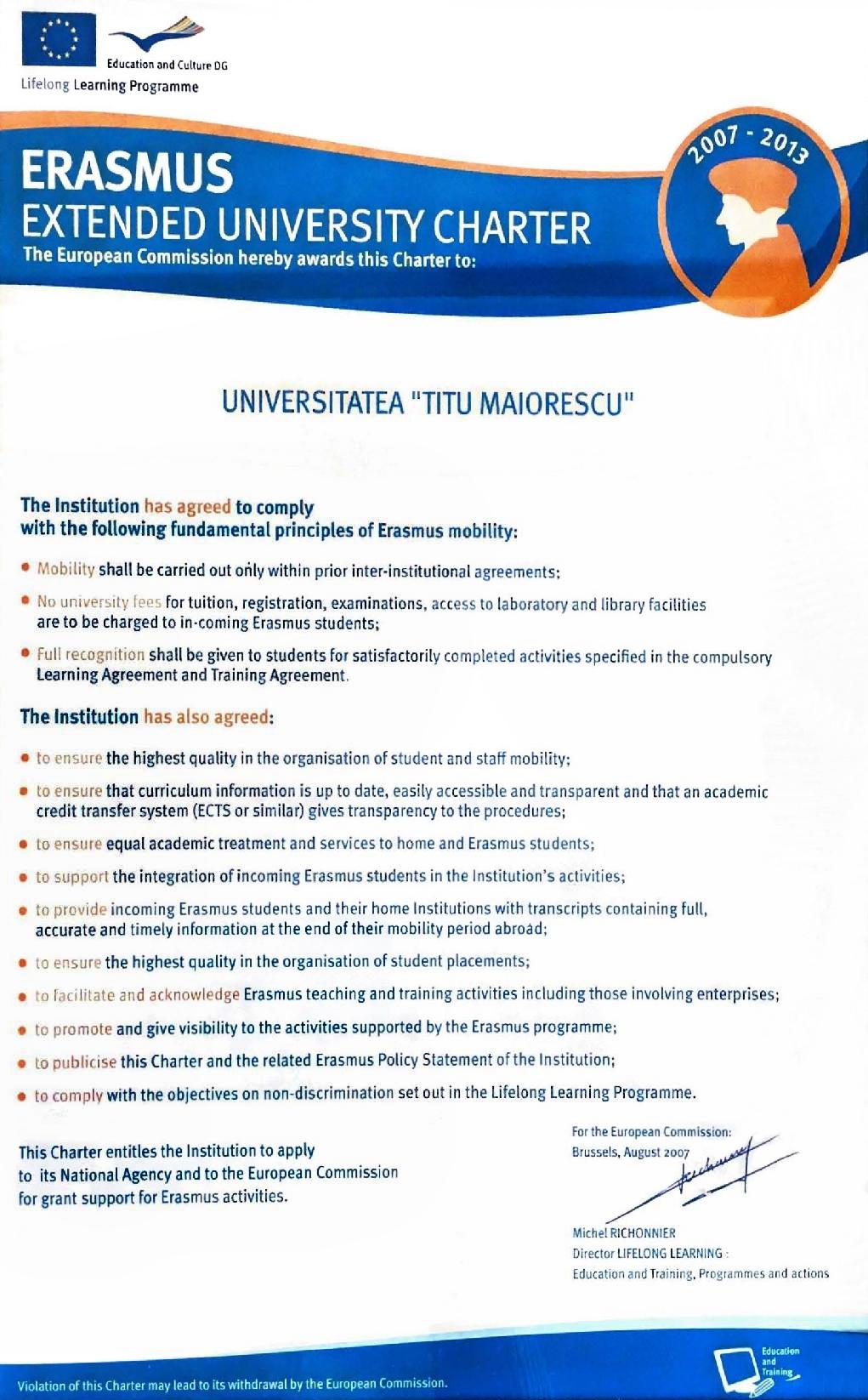
ERASMUS POLICY STATEMENT
The Erasmus Policy Statement defines our institutional strategy in relation to the Erasmus Charter for Higher Education, which has been awarded to Titu Maiorescu University for the Erasmus+ programme 2014-2020.
Founded in 1990, Titu Maiorescu University (TMU) has a unique position in the Romanian Higher Education system. The university has developed according to the socio-economic and labour market requirements, so that currently it is a comprehensive private university with 10 faculties that provide a diversified educational offer, on all three cycles: Bachelor, Master’s and PhD programmes. TMU is the only Romanian private university with the full spectrum of BA in health education (Medicine, Dentistry and Pharmacy), Informatics, Law, Psychology, International Relations and Communication, Finance & Accounting, numerous MA programs and three doctoral schools (Medicine, Dentistry and Law).
TMU’s strategic approach to international development is a multifaceted endeavour, that encourages a wide range of activities “at home” and “abroad”. Being a member of European Universities Association (EUA), European Association of Erasmus Coordinators (EAEC) and Francophone University Agency (AUF), TMU is integrating the European approach to university education and research, aiming to prepare its students for the global labour market, to encourage interuniversity cooperation and a system of continuous training for the academic and teaching staff.
Contributing to the European agenda of modernisation, TMU aims to build further the university’s international profile by:
- Stimulating the students’ exchanges for study and traineeship in order to increase their professional, social and intercultural skills and employability;
- Encouraging the participation of academic and non-academic staff in international teaching and training programmes and by this supporting them in developing multicultural competences and promoting the image of the University at international level;
- Welcoming visiting academic staff and valuing the contribution they make to its teaching programmes and curriculum development;
- Further increasing the number of courses taught in English and French and other transnational teaching activities (summer schools, joint courses/degrees etc). Currently, two study programs are completely taught in English – Medicine and Dentistry and preparations are made for several other study programs at BA and MA level;
- Strengthening partnership with academia, research and business organizations from program and partner countries that can provide a range of opportunities for the multiple stakeholders in the TMU community to promote excellence and innovation.
In the implementation of these priorities, TMU undertakes the following actions:
- Ensures equal access and opportunities by organising the selection of mobile staff and students and the award of grants in a fair, transparent, coherent and documented way;
- Provides support for the cultural and linguistic challenges which will be encountered during mobility, by organizing language courses for the future mobile students and staff to refresh their language skills, meetings and discussions with former mobile staff / students etc.;
- Applies an academic credit transfer system (ECTS or compatible system) to give transparency to the recognition procedures and respects the basic ECTS principle that 60 ECTS credits are attached to the workload of a full-time year of formal learning (academic year). The credits that the outgoing student earns during the mobility period, which were originally agreed in the Learning Agreement, are recognised.
- Exempts any type of fees for the tuition, registration or examination of the incoming students and affords them the same academic treatment and access facilities offered to local students. For incoming mobility, the Erasmus+ Office centralizes the receiving applications from students and staff interested in mobility at Titu Maiorescu University (TMU) and passes them to the specific faculty coordinator. The mentoring for incoming students is ensured at faculty level, by the faculty Erasmus+ coordinator. A Romanian language course is provided for the incoming students.
- Provides financial support to students mobile for studies by supplementing the Erasmus+ grant by waiving the tuition fee for the duration of their mobility.
- Establishes Mobility Agreements for staff for the purpose of teaching or receiving training taking into account the institutional requirements / strategy, academic rationale, foreseen outcomes and the staff member’s competences. The staff mobility may be organized either centralized, by the Erasmus+ Office, or by the faculty coordinator. Erasmus+ Office assists the staff to identify the most suitable mobility and to complete the administrative procedure. The mobility recognition is based on the Certificate of attendance issued by the host institution and on the individual activity report.
- Assists the mobile staff / students who need a visa by issuing, in a timely manner, the documentation required (i.e. letters confirming the staff / students’ status) for the visa application;
- Initiates, signs and implements inter-institutional agreements based on a comprehensive understanding of the partner HEI, compatibility of academic profiles (level/ standards considered adequate for mobility activities) with intention to ensure that a balance is struck between academic interests and other factors influencing institutional decisions (e.g. geographical and subject area balance etc.);
- Participates in European and international cooperation projects in a pro-active way as part of the modernisation and internationalisation strategy, establishing from the very beginning the objectives for its participation, the role it intends to play and the results which it expects to achieve.


